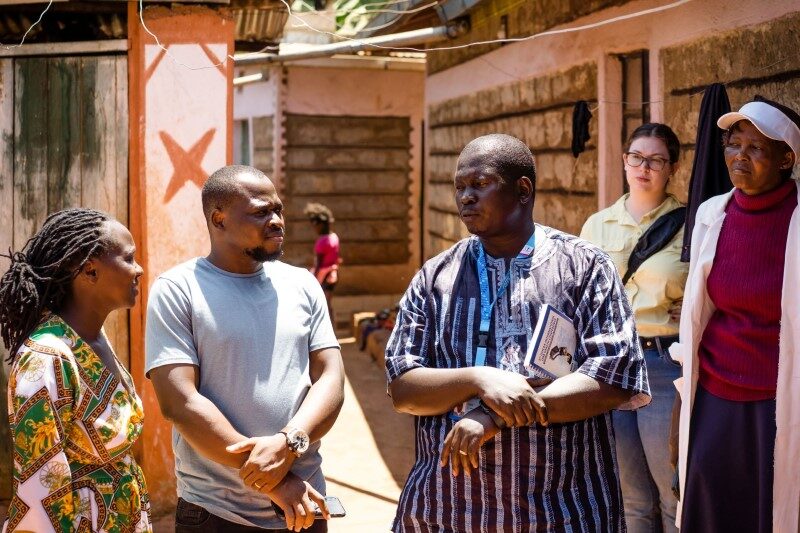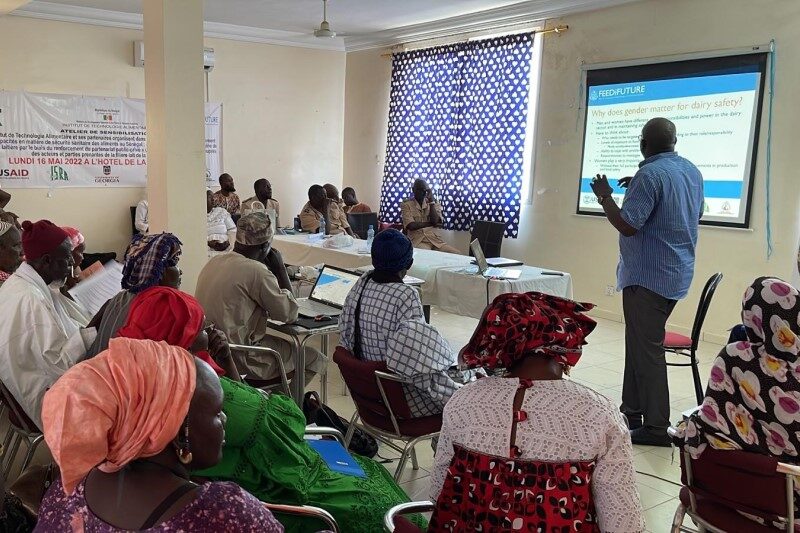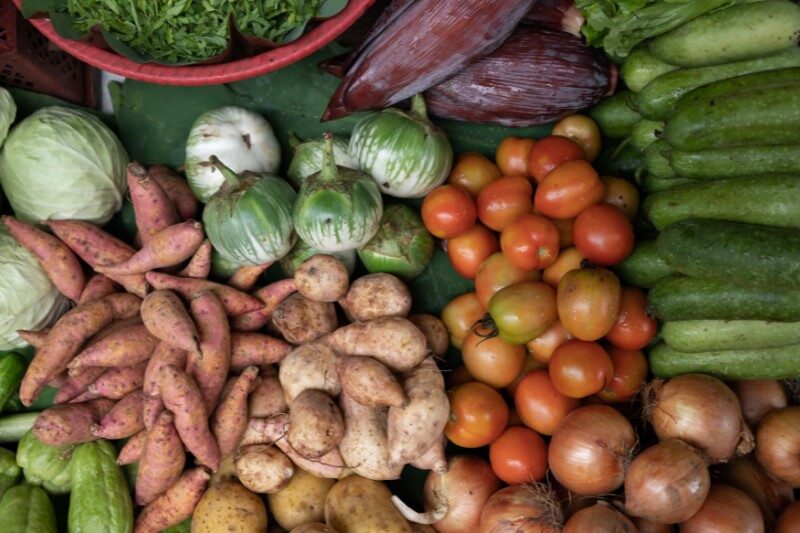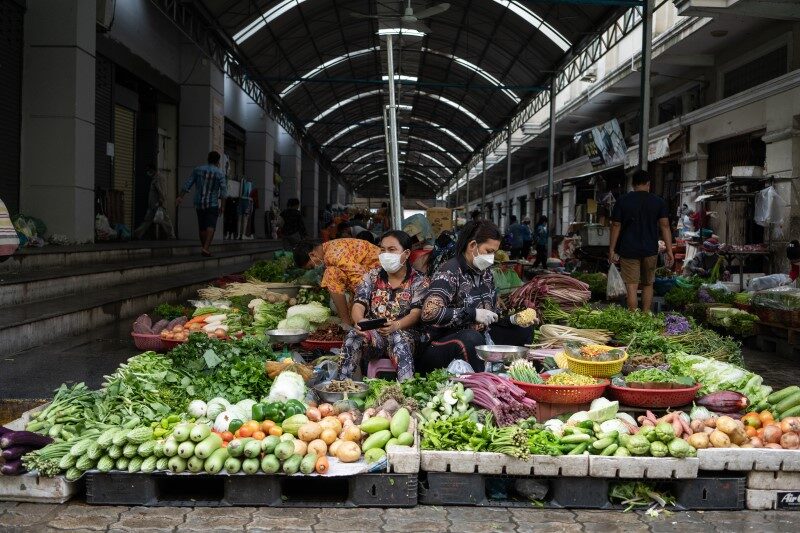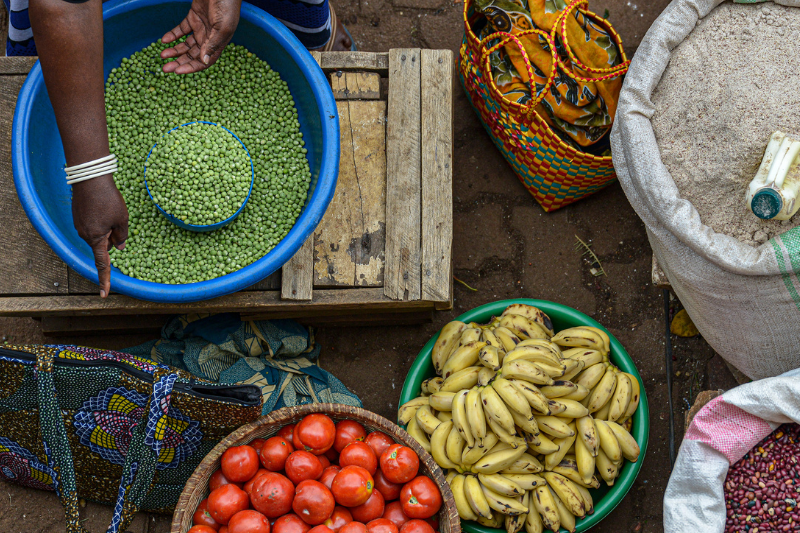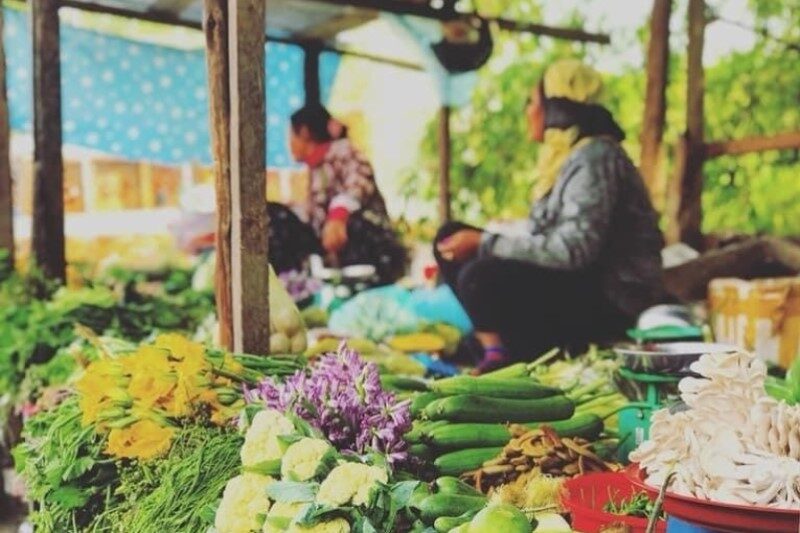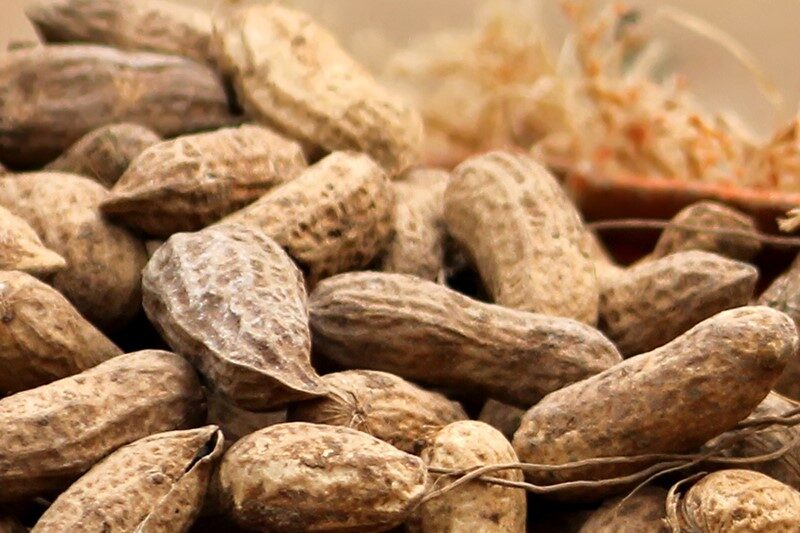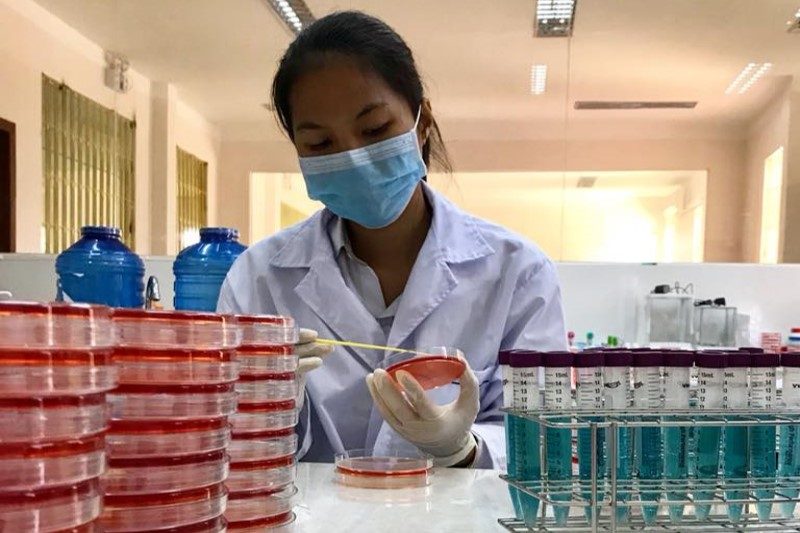Posted on June 22nd, 2022 in Program Updates
Poultry production systems worldwide are vulnerable to contamination with bacterial pathogens, such as non-typhoidal Salmonella, which is the leading cause of death from foodborne disease in Africa. Research grounded in locally led decision-making about priorities will be better positioned to generate sustainable, scalable food safety solutions. Leveraging this approach, a team of Kenya- and U.S.-based researchers held a risk ranking workshop in March, engaging female smallholder farmers in Kenya in prioritizing food safety interventions for rigorous evaluation.
Continue reading on Agrilinks
Posted on June 16th, 2022 in Program Updates
In late May, more than 40 dairy producers and processors gathered in Senegal’s Matam region, some having traveled up to 75 miles or with a child in tow. The participants, part of the country’s rapidly growing yet highly fragmented dairy supply chain, were attending a seminar on food safety fundamentals. It was one of three hosted in Senegal by a dairy safety project funded by the Feed the Future Innovation Lab for Food Safety.
Continue reading on Agrilinks
Posted on May 13th, 2022 in Program Updates
To boost the nutritional well-being of its population, Cambodia’s government has made a big push to increase the production and consumption of fresh produce throughout the country. For vegetables which are consumed uncooked, such as lettuce, preventing contamination from bacteria that cause foodborne illnesses is a food safety challenge. New research from a team of Cambodia- and U.S.-based scientists shows that distribution centers have a role to play in reducing foodborne illness.
Researchers funded by the Feed the Future Innovation Lab for Food Safety have been analyzing the fresh vegetable distribution chain in Cambodia — from farmers to distribution centers to fresh market sellers — to understand where contamination occurs and identify intervention strategies to strengthen food safety practices.
Continue reading on Agrilinks
Posted on March 2nd, 2022 in Program Updates
With the COVID-19 pandemic, many new concerns for food safety and food businesses followed. To address this, members of a newly developed international task force mentored by food safety experts at the Institute for Food Safety at Cornell held virtual information office hour sessions. These sessions provided science-based information on COVID-19 and protocols to reduce transmission in food businesses and address industry questions that ranged from the vaccine to the application of non-food-grade sanitizers to foods.
Continue reading on Agrilinks
Posted on September 22nd, 2021 in Program Updates
This comprehensive review of food safety investments in East Africa analyzes trends in past funding to identify under-resourced sectors, hazards, and approaches.
Continue reading on Agrilinks
Posted on April 20th, 2021 in Program Updates
The landscape review of food safety efforts in Cambodia titled “Food Safety in Cambodia: Current Programs and Opportunities” describes the current status of food safety governance, surveillance, research, and partnerships and advocates for strengthening food safety practices and policies by addressing seven key gaps and opportunities in Cambodia’s food safety environment.
Continue reading on Agrilinks
Posted on April 12th, 2021 in Opportunities, Program Updates
USAID’s Bureau for Resilience and Food Security and its partners, including the Feed the Future Innovation Lab for Food Safety, are committed to fostering the growth and professional development for minorities and others who have been historically underrepresented in international development. Through initiatives like the Diversity, Equity and Inclusion Council and the Feed the Future Innovation Lab for Food Safety’s RFA for global food safety research at MSIs, USAID and our partners will work to address inequalities within the international development community.
Continue reading on Agrilinks
Posted on March 3rd, 2021 in Program Updates
Groundnuts (peanuts) are widely used in Senegalese cuisine and are a critical part of the poverty reduction strategies targeted at rural households. However, every stage of their production, processing, and storage carries a risk of microbial and fungal contamination that can lead to foodborne illnesses. In a project funded by the Feed the Future Innovation Lab for Food Safety (FSIL), an interdisciplinary team at Purdue University partnered with the Institut Sénégalais de Recherches Agricoles (ISRA) to quantify chemical and microbial contamination levels in groundnuts that smallholder farmers in Senegal eat, sell and store for seed.
Continue reading on Agrilinks
Posted on December 10th, 2020 in Program Updates
Food businesses and consumers struggling with impacts of COVID-19 in Bangladesh, Cambodia, Kenya, Nepal and Senegal now have access to customized resources, thanks to a mentorship project led by the Institute for Food Safety at Cornell University.
Continue reading on cornell.edu
Posted on December 3rd, 2020 in Program Updates
The first challenge faced by the Feed the Future Innovation Lab for Food Safety’s inaugural project in Cambodia was not one they expected – how to maintain momentum in the face of the coronavirus pandemic and international lockdowns. In response, the Kansas State University–Purdue University–Royal University of Agriculture (RUA) partnership fast-tracked the building of Cambodian food safety expertise and research capacity.
Continue reading on agrilinks.org
